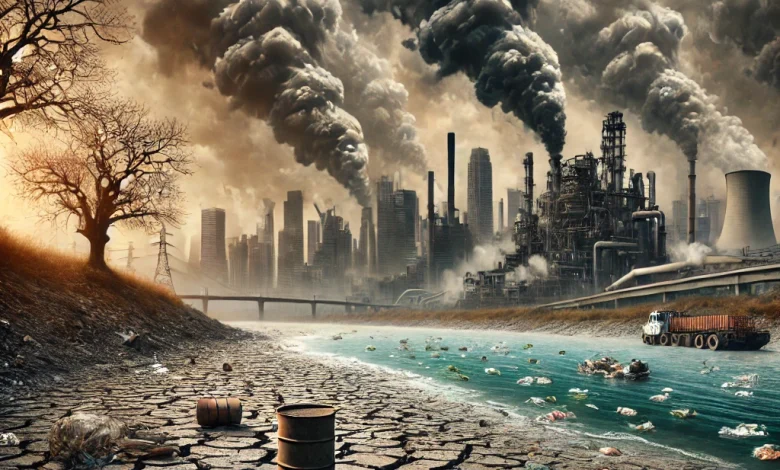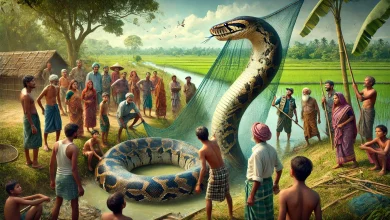The Growing Threat of Global Pollution: Challenges and Solutions”
The Growing Threat of Global Pollution: Challenges and Solutions"

Global pollution is one of the most significant threats facing humanity today. It affects every aspect of our lives, from the air we breathe to the water we drink and the food we consume. As industrialization and urbanisation continue to expand, pollution levels have surged, leading to dire consequences for both the environment and public health. Addressing this crisis requires a comprehensive understanding of its causes, impacts, and potential solutions.
# global pollution, environmental crisis, air pollution, water contamination, soil pollution, climate change, sustainable solutions, pollution control, renewable energy, community recycling, marine biodiversity, pollution prevention.
The Growing Threat of Global Pollution: Challenges and Solutions”
Types of Pollution:
Air Pollution: Air pollution is perhaps the most visible form of environmental degradation. It results from the emission of pollutants such as carbon monoxide, sulfur dioxide, and nitrogen oxides, primarily from vehicles, factories, and the burning of fossil fuels. These pollutants contribute to the formation of smog and acid rain and are a major cause of respiratory problems, heart disease, and other health issues. The World Health Organization (WHO) has reported that air pollution is responsible for millions of premature deaths annually, highlighting the urgent need for global action.
Water Pollution: Water pollution has escalated due to industrial discharge, agricultural runoff, and the improper disposal of waste. Oceans, rivers, and lakes are contaminated with toxic chemicals, plastics, and untreated sewage, endangering marine life and human health. Microplastics have been detected in fish and even in human blood, pointing to the pervasive nature of water pollution. Efforts to curb this issue must include stricter regulations on waste management, better sewage treatment infrastructure, and widespread public education on responsible waste disposal.
Soil Pollution: Less visible but equally concerning is soil pollution. Agricultural practices that rely heavily on chemical fertilizers and pesticides can leach harmful substances into the soil. Industrial activities contribute further by releasing heavy metals and hazardous chemicals that can persist in the environment for decades. This contamination reduces the fertility of the soil, disrupts food production, and poses health risks to those consuming crops grown in polluted areas.
Consequences: The implications of pollution are far-reaching. Air pollution alone contributes to climate change by increasing concentrations of greenhouse gases. Rising global temperatures lead to more frequent and severe weather events, such as hurricanes, floods, and droughts, which in turn impact food and water security. Water pollution, meanwhile, devastates marine biodiversity. Coral reefs, often called the “rainforests of the sea,” are dying due to warming seas and increased acidity caused by pollutants. The loss of these ecosystems disrupts the balance of marine life and affects millions of people who rely on fishing for their livelihoods.
Soil pollution poses a different set of challenges. Polluted soil can harbor toxins that are absorbed by plants, entering the food chain and ultimately affecting human health. This contamination can lead to chronic illnesses, developmental problems in children, and reduced agricultural productivity.
Solutions: While the situation is dire, there are actionable steps that can mitigate the impact of global pollution:
Stricter Environmental Regulations: Governments play a pivotal role in combating pollution. Enforcing stricter emissions standards for vehicles and industries, limiting the use of harmful chemicals, and cracking down on illegal waste dumping are essential measures. Policies that incentivize the use of clean energy sources such as wind, solar, and hydroelectric power can also reduce dependence on fossil fuels and decrease pollution.
Sustainable Industrial Practices: Companies must adopt sustainable practices, such as reducing waste, recycling materials, and using eco-friendly technologies. Transitioning to a circular economy, where products are designed for reuse and recycling, can significantly reduce industrial waste and resource consumption.
Community and Individual Actions: Public involvement is equally critical. Communities should promote recycling and waste reduction programs, organize cleanup initiatives, and support local green projects. Individuals can contribute by making lifestyle changes like using public transport, reducing single-use plastics, and supporting environmentally responsible companies.
Technological Innovations: Advances in technology offer promising solutions to tackle pollution. Air quality monitoring systems, carbon capture and storage technologies, and advanced water filtration methods are becoming more accessible and effective. Investment in research and development of such technologies can accelerate the global fight against pollution.
Challenges to Implementation: Despite the availability of solutions, significant challenges remain. Developing countries often lack the resources or political will to enforce environmental laws, focusing instead on economic growth. This has created a situation where pollution is exported from more affluent nations to poorer ones. Bridging this gap requires international cooperation, knowledge sharing, and financial support from wealthier nations to help developing countries transition to greener practices.
Conclusion: Pollution, in its many forms, poses a monumental challenge to the health of our planet and its inhabitants. However, with concerted effort and global cooperation, there is hope for reversing these trends. Governments, industries, and individuals all have roles to play in creating a sustainable future. By adopting stricter regulations, supporting innovative solutions, and promoting public awareness, the world can move toward a cleaner, healthier environment for generations to come.




